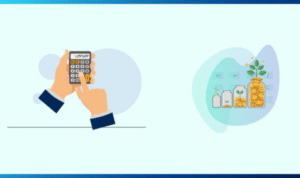In recent years, Islamic banking has gained substantial traction worldwide, providing an ethical and Sharia-compliant financial alternative. One notable player in this sector is bank al khair, an institution dedicated to upholding Islamic finance principles while catering to modern banking needs. This article will explore the key aspects of Islamic banking, delve into Al Khair Islamic Bank’s offerings, and understand the bank’s role in promoting ethical banking practices.
The Fundamentals of Islamic Banking
Islamic banking operates on the principles of Sharia, the legal framework based on Islamic teachings. Unlike conventional banks, which profit from interest (riba), Islamic banks adhere to a unique structure that prohibits interest-based earnings. Instead, they focus on risk-sharing and asset-backed financing. This makes Islamic banking appealing to individuals who prefer a financial system aligned with their religious and ethical values.
Several primary principles govern Islamic banking:
- Prohibition of Interest (Riba): Interest or “riba” is strictly forbidden in Islamic finance. Islamic banks make profits through permissible means, such as trade and investment in tangible assets.
- Risk Sharing: Islamic banks operate on a risk-sharing basis, where the profits and losses of an investment are shared between the bank and its customers.
- Asset-Backed Financing: Islamic banks finance projects and assets that contribute to the real economy, as they do not involve speculative or debt-based transactions.
- Ethical Investment: Islamic banks avoid investments in sectors deemed unethical or harmful under Sharia, such as alcohol, gambling, or tobacco.
Al Khair Islamic Bank: A Pioneer in Sharia-Compliant Services
Al Khair Islamic Bank is known for its commitment to providing banking solutions that align with Islamic values. The bank has successfully bridged the gap between Sharia-compliant principles and modern financial needs by offering a variety of services for individuals and businesses. Al Khair’s range of products is designed to cater to the diverse needs of its clients, ensuring that they can manage their finances while adhering to their religious beliefs.
Personal Banking
Al Khair Islamic Bank offers personal banking solutions that allow individuals to manage their savings, investments, and daily transactions within the framework of Islamic finance. Some of the personal banking services provided include:
- Savings and Investment Accounts: These accounts enable customers to save and grow their wealth without earning or paying interest. Instead, profit-sharing mechanisms are used, allowing clients to share in the bank’s profits based on their deposits.
- Current Accounts: Al Khair’s current accounts offer a convenient and Sharia-compliant option for day-to-day transactions. Clients can access various facilities, including online banking, debit cards, and ATM withdrawals.
- Home Financing: To make homeownership accessible, Al Khair provides home financing through a concept called “Murabaha,” where the bank purchases a property and sells it to the client at a profit. This eliminates interest payments and aligns with Islamic finance principles.
Business Banking
Al Khair Islamic Bank also offers Sharia-compliant business banking services. From start-ups to established businesses, the bank assists enterprises in expanding and managing their finances without relying on conventional interest-based loans.
- Working Capital Financing: Al Khair helps businesses maintain smooth cash flow by providing working capital financing solutions. These are often structured as partnerships or cost-plus transactions to ensure they comply with Islamic finance principles.
- Trade Financing: For businesses involved in international trade, Al Khair provides trade finance options. These facilities are structured as partnerships or cost-plus sales (Murabaha), enabling businesses to engage in global commerce without compromising on their values.
- Equipment and Machinery Financing: Businesses requiring assets like machinery or vehicles can benefit from Al Khair’s Ijarah (leasing) model, where the bank retains ownership of the asset and leases it to the business for an agreed term.
Investment Services
Al Khair Islamic Bank also provides investment opportunities for clients seeking Sharia-compliant options to grow their wealth. These investments are structured to avoid speculation and ensure tangible backing.
- Sukuk Investments: Sukuk, or Islamic bonds, are a popular option for clients looking to invest in fixed-income assets. These bonds represent ownership in an underlying asset rather than a debt obligation, making them compliant with Islamic finance.
- Mutual Funds: Al Khair offers access to mutual funds that invest in sectors aligned with Islamic ethics. These funds diversify client portfolios and mitigate risk by investing in Sharia-compliant industries.
Advantages of Banking with Al Khair Islamic Bank
Choosing Al Khair Islamic Bank comes with several unique benefits for individuals and businesses who wish to practice ethical banking. Here are some of the major advantages of banking with an Islamic financial institution:
- Sharia Compliance: All of Al Khair’s products and services are designed to adhere strictly to Islamic principles, providing peace of mind for those seeking an ethical financial alternative.
- Risk Mitigation: The risk-sharing model means that clients are not alone in their financial journey. The bank shares the risks and profits, which fosters trust and partnership.
- Transparency: Al Khair Islamic Bank is transparent in its operations, ensuring clients are well-informed about where their money is invested and how profits are generated.
- Ethical Investment: Al Khair avoids industries considered harmful or unethical, allowing clients to invest in industries that positively impact society.
Challenges Faced by Islamic Banks
Despite its benefits, Islamic banking also faces certain challenges. Firstly, understanding and implementing Sharia-compliant principles requires specialized expertise and can result in higher operational costs. Additionally, public awareness about Islamic banking is still growing, meaning not all potential clients understand its advantages and mechanisms.
Regulatory frameworks are another challenge, as Islamic banks operate in both Muslim-majority and secular countries with varying legal requirements. Nevertheless, with institutions like Al Khair Islamic Bank promoting awareness, Islamic banking is gradually gaining recognition and acceptance worldwide.
Conclusion
In a world where financial ethics are increasingly prioritized, al khair bank Aurangabad stands out as a leading institution for Sharia-compliant banking. By providing transparent, risk-sharing, and asset-backed financial solutions, Al Khair Islamic Bank has built a reputation for trustworthiness and ethical banking. For individuals and businesses alike, the bank represents a sustainable approach to finance, enabling clients to manage their wealth while adhering to their values. Through innovative products and a commitment to Islamic principles, Al Khair continues to contribute to the growing acceptance and understanding of Islamic banking.






